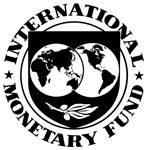
Mozambique is to draw immediately an amount equivalent to SDR85.2 million (about US$132 million). “The IMF financing will help Mozambique offset the deterioration of its balance of payments, which has been undermined by the global economic downturn. The ESF is designed to provide policy support and financial assistance on concessional terms to eligible low-income countries facing temporary exogenous shocks,” added Fischer.
The IMF executive board also completed the fourth review of Mozambique's economic performance under the three-year Policy Support Instrument (PSI). The PSI for Mozambique was approved on 18 June 2007 to support the nation's economic reform efforts. It is aimed at consolidating macroeconomic stability and at achieving sustained economic growth and poverty reduction through the pursuit of prudent macroeconomic policies as well as promoting structural reforms. The strategy to achieve this goal remains set in the Mozambican authorities' national poverty reduction strategy - Plano de Acção para Redução da Pobreza Absoluta (PARPA II).
Following the executive board's discussion of Mozambique, Takatoshi Kato, deputy managing director and acting chair said, “Mozambique continued with a strong macroeconomic performance in 2008, as a flexible policy response to higher fuel and food import prices helped to mitigate the impact of internal and external shocks in a challenging external environment.”
“As Mozambique remains vulnerable to the global economic slowdown”, he stated, “International and domestic developments will need to be closely monitored.”
Mozambique's strong track record of prudent macroeconomic policy implementation has provided room for an easing of fiscal and monetary policy in the near-term while remaining within its prudent medium-term strategy. In this context, the authorities' commitment to expenditure restraint in the approach to elections is welcome.
“In the medium-term, steps to enhance domestic revenue mobilisation and to improve public financial management will contribute importantly to further strengthening macroeconomic stability," said the source, adding that “avoiding recourse to domestic financing of the budget will provide room for credit to the private sector.” Strengthened monetary policy formulation and implementation will also help to maintain low inflation. Intensified efforts to diversify the sources of growth and to accelerate structural reforms will boost Mozambique's competitiveness, promote investment, and improve financial intermediation.
According to IMF officials, closer attention to a broader basket of currencies that is more reflective of Mozambique's trading patterns, could help to redress the overvaluation of the currency in real effective terms, which could have adverse impact on Mozambique's competitiveness and economic diversification.
Mozambique has continued to advance on its structural reform agenda. Fiscal and monetary operations have been strengthened and an enhanced business environment for both domestic and foreign investment is targeted. IMF also welcomed Mozambique candidacy for adherence to the Extractive Industries' Transparency Initiative.
“Mozambique has made significant progress towards developing and strengthening the financial sector and improving banking operations. The authorities have committed to move ahead quickly to assess and finalise an action plan to further strengthen the financial sector, including risk monitoring, home-host cooperation on banking supervision, and crisis management arrangements,” Kato finalised.